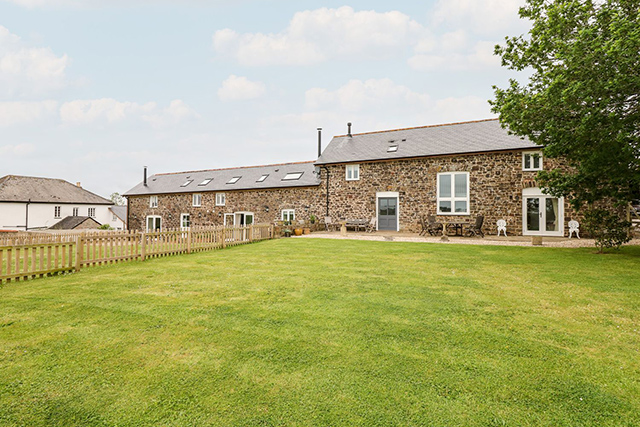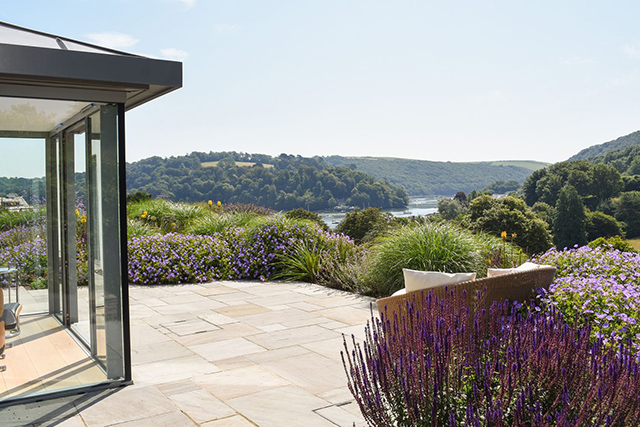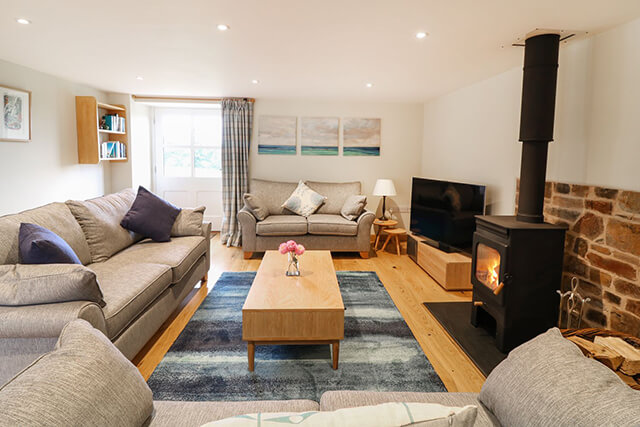Have you ever thought about buying a holiday home to let out as a business? If you have, we explore the various topics which highlight the opportunities, key considerations and steps required to make the most out of your holiday let investment.
It’s important to make the right decisions from the start to get the most of your investment and to enjoy the benefits of your own holiday home bolthole. Getting the practicalities of a holiday letting business right may seem daunting. But with sound advice, proper research, and an understanding of the market, you’ll be on your way to letting success.
Use the quick links below to navigate to a specific topic or continue reading for our detailed guide on buying a holiday home to let.
Is now a good time to buy a holiday let?

Despite evolving regulations and a changing financial landscape, 2025 continues to offer strong potential for those investing in a UK holiday let. The market has matured since the post-pandemic surge, but demand remains consistently high — particularly in sought-after destinations like the South West.
Confidence in the market remains high
Sykes Holiday Cottages’ 2025 Holiday Letting Outlook Report shows that holiday home owners earned an average of £24,700 in 2024, up slightly from the year before, despite a changing political and economical climate. Some South West hotspots saw even higher average earnings, like Crantock in Cornwall, reaching £35,600.
This proves that with the right property and location, strong returns are still well within reach.
Demand for UK breaks is going nowhere
Bookings through Sykes rose 2.2% year-on-year, making 2024 the company’s best-ever year for holiday bookings. Even as overseas travel becomes more accessible, UK staycations are holding firm, fuelled by the ease, value, and variety they offer.
Navigating Change with Confidence
While the removal of the Furnished Holiday Let tax regime in April 2025 does alter the landscape, many owners are already adapting. In fact, the Holiday Letting Outlook Report shows that 39% of holiday let owners are choosing to increase availability, and 33% have raised rates to maintain profitability.
Where to buy a holiday home
If you are looking at investing in a holiday let, where should you buy? Apart from your personal preference, it is important to choose a location that appeals to holiday makers when buying a holiday home to let. A prime tourist location will ensure a high volume of bookings and a good return on investment.
The South West specifically continues to be popular in holidaymakers’ Google searches. ‘Cornwall holiday cottages’ has an average of 33,100 searches per month, while ‘Devon holiday cottages’ sees an average of 14,800 searches per month.
In our experience, the top three location features to consider are sea views, parking and short distance to a beach or town. Do not forget areas of natural beauty, Devon has plenty of peaceful countryside and picturesque villages across Dartmoor, Exmoor and beyond!
Close proximity to good amenities is one of the most influential factors in a guests’ choice of holiday home. Situated within easy reach, or better still, walking distance to a pub, restaurant, shops, and visitor attractions will boost a holiday homes desirability and booking performance.
Key benefits of buying a holiday let

Buying and setting up a holiday home to let represents a significant financial commitment. So understanding the advantages from the offset can help guide your journey.
Your own holiday destination
Undoubtedly one of the key motivators in buying a property, is the luxury and convenience of having your own holiday destination. A home away from home, where happy memories can be made. Buying a holiday home to let allows you the opportunity to have a lucrative letting business which offsets the cost of having your own holidays.
Higher income potential
Another reason people are getting onto the second-property ladder is that holiday homes can prove highly lucrative. Especially at peak times of the year. During the busy summer months, the earnings from holiday property rentals are significantly higher than the returns on a normal long term let. The average income of a holiday let owner is £21 000 per year*.
Buying a holiday let as a potential retirement property
For many, a key benefit is the potential of a future nest egg. A place to retire or part of a pension investment. Often, you’ll find that popular retirement locations are likely to be sought after areas with holiday makers too. So, where better to acquire a future lifestyle financed by others in the place where you enjoy your holidays best?
Cover the costs of improvements at your holiday cottage
Any income received from letting your holiday cottage will naturally cover the running expenses, but also allow you the means to add extra facilities and cover the cost of improvements. A successful holiday let should generate a steady income. Allowing you the chance to improve your property with your future needs in mind.
Lucrative future sale of your property
Not forgetting that as with most properties across the UK, inflation means that your holiday home will always be worth more in the future. Provided you choose the right property, and keep it up to standard, you can expect it to go up in value over time. A proven successful holiday let business, will attract buyers and benefit from a good asking price. This translates in additional profit when you sell.
Consider who will be staying at your holiday cottage

Before buying a property, the key to success is understanding your preferred target market. Will you be catering for guests looking for a spacious getaway that’s suited to families? Or is it a romantic seaside bolthole or a secluded woodland cottage for couples? The size, type and location of a holiday property will naturally dictate who you attract.
Couples retreat
A holiday home is often the perfect place for special occasions. Whether it’s a birthday celebration, anniversary or just a romantic couples retreat. Guests seek out a property that will make loved ones feel special. They’re willing to pay a premium and expect the price to reflect the quality.
If you are buying a one– or two-bedroom holiday home, your property will be a perfect staycation for holiday makers. According to our 2025 Holiday Letting Market Insights Report, 40% of our holiday bookings were by couples in 2024.
Group getaways
27% of Helpful Holidays’ bookings in 2024 were by adult groups. So, investing in a four– or five-bedroom property that attracts groups and large families will also be a lucrative option.
Ensure you offer plenty of space for all guests to eat, sleep and relax comfortably. Also consider a good ratio of living space to bedrooms.
Dog-friendly holidays
A very important part of the family to be considered is the four-legged member. Perhaps your holiday home and the area are well suited to dog owners? Having a property that is pet-friendly means you are able to attract a wider audience. Our dog-friendly properties see, on average, 2.5 extra bookings and 18% more revenue per year.
Key considerations when buying a holiday home to let

There are a number of things that are specific to owning and running a holiday let. Some may not be obvious, so we’ve collated key considerations to help with your holiday letting journey.
Holiday let mortgages
If you require financing to buy your holiday home, you will face increasingly stringent affordability criteria from mortgage lenders. Unsurprisingly, they require evidence that you will be able to keep up with the repayments on your second home – especially if you have a mortgage for your current property.
They often require a letter from a reputable holiday letting agent. This is to confirm the anticipated gross weekly rental for the low, mid, and high seasons. The good news is, Helpful Holidays are a recognised source for lenders and can provide a letter including an annual projected income to support your mortgage application.
For detailed advice on the subject read our outline on guidance to holiday home mortgages.
Health and safety regulations for holiday lets
Buying a holiday home to let will mean that you have a care of duty to your guests. It means you are legally obliged to provide safe accommodation and do everything you can to minimise the risk from potential hazards. To understand the main points to consider and comply with, read our blog on health and safety regulations for holiday lets.
Holiday let management
When buying a holiday home to let, choosing how it is going to be managed is an important decision. Choosing to manage your holiday let yourself may be a cost-effective option but it is time consuming. You need to make sure that you have enough time on your hands to do so.
Using a holiday let management company is a great way to save time and effort. Finding the right holiday letting agency for expert advice and support can make all the difference to help you achieve holiday let success. Partnering with a team of industry experts like Helpful Holidays, who specialise in the self-catering holiday market is key to your property’s earning potential and overall success.
Costs when buying a holiday home to let

Stamp duty land tax
Another consideration if you’re planning to buy a holiday home to let is stamp duty. If you’re purchasing an additional home, you’ll have to pay an extra 5% in stamp duty land tax, on top of the current rates. For specific details and up-to-date stamp duty rates for second homes, read our guide to holiday let tax.
Council tax and business rates
Owning a holiday home will mean you are responsible for paying either council tax or business rates to the relevant authorities. Which one you ned to pay depends on how often you let the property, and it’s important to understand what the distinction is.
For clarity on which would apply to your situation, read our blog on holiday let council tax vs business rates.
Holiday let insurance
Standard home insurance will not provide adequate cover for a holiday let. Therefore, you’ll need to take out specialist holiday home insurance.
If you plan on renting out your holiday home to paying guests, you’ll need to consider including public liability cover as part of your holiday home insurance policy. If the property is going to be left unoccupied for long periods of time, you’ll need to ensure that you’re covered for the raised risk of water leaks, burst pipes and theft.
Read our guide on how to prevent water leaks in your holiday let.
Furnishing a holiday let
Another important cost to consider is the purchasing of furnishings for your holiday home. We recommend buying quality, hard-wearing furniture that will be able to last several seasons before being replaced. For more specific advice, read our blog on buying beds for holiday homes.
Holiday let yield
The size and flexibility of holiday properties can affect the potential return on investment. A larger property allows for higher rental prices, as well as appealing to a wider market. It can accommodate various groups of guests and as a result, the property is more likely to generate bookings throughout the year.
If you would like to know how much your investment will return, we can help. We have been successfully managing and marketing holiday homes for over 40 years. We have the knowledge and experience to help advise you on buying a holiday home as well as how to maximise the return on your investment.
Expert advice on buying a holiday let
As with all investments, buying a holiday home to let comes with some risk. Our property team is ready to help you avoid the pitfalls and assist you through every aspect of buying and letting.
No matter where you are in your letting journey, we have the help and advice to take the hassle out of holiday letting.
For more helpful tips and suggestions head over to our Owner Advice Blog.
At Helpful Holidays, our team of holiday letting experts are on hand to offer advice. We’re happy to help answer any questions you may have on a particular subject. Find out more about letting with us, request your FREE guide or call our team on 01647 433593 today.
As a holiday letting owner you are responsible for compliance with health & safety laws, regulations and guidance, and for having suitable insurances in place (not Sykes Holiday Cottages or its brands (Sykes)). From time to time, Sykes shares information with you on the topic of health and safety and insurance. When it does so, it is not providing you with advice (legal, financial, tax or otherwise); please seek your own as you see fit. In addition, it is not making any representations or warranties about the information being complete or free from errors or inaccuracies. Sykes shall not be liable for any loss or damage arising under or in connection with your reliance on it.